#kim thomson
Photo








112 notes
·
View notes
Text
















Great Expectations - The Disney Channel - July 9 - 11, 1989
Drama (3 Episodes) (6 Episodes in the UK)
Running Time: 120 minutes (60 minutes in UK)
Stars:
Anthony Hopkins as Magwitch
Jean Simmons as Miss Havisham
John Rhys-Davies as Joe Gargery
Ray McAnally as Mr Jaggers
Anthony Calf as Pip
Kim Thomson as Estella
Adam Blackwood as Herbert
Martin Harvey as Young Pip
Susan Franklyn as Biddy
Rosemary McHale as Mrs Gargery
Niven Boyd as Orlick
Sean Arnold as Compeyson
Frank Middlemass as Uncle Pumplechook
John Quentin as Mr Wopsle
Preston Lockwood as Mr Hubble
Eve Pearce as Mrs Hubble
Simon Warwick as Startop
#Great Expectations#TV#Drama#1989#1980's#The Disney Channel#Anthony Hopkins#Jean Simmons#John Rhys-Davies#Ray McAnally#Anthony Calf#Kim Thomson#Adam Blackwood
4 notes
·
View notes
Text
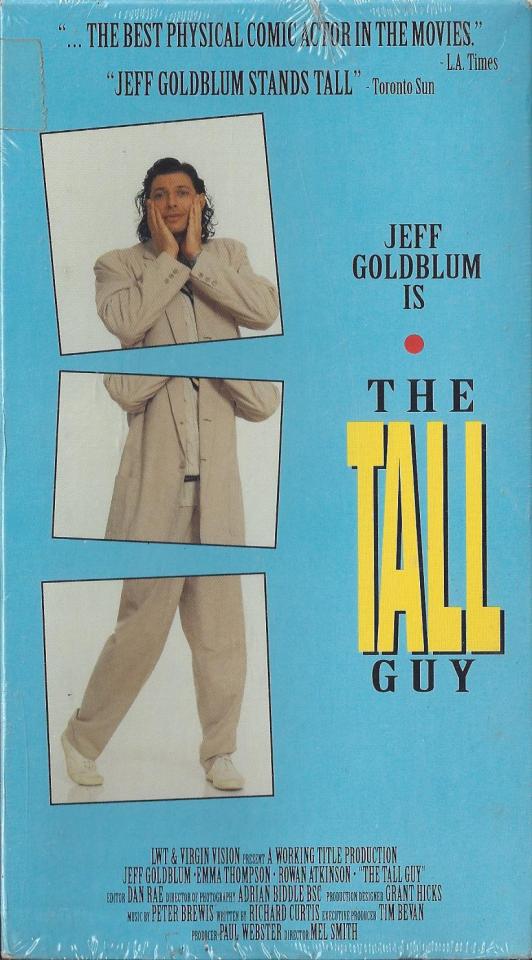




The Tall Guy (1989) Mel Smith
December 17th 2023
#the tall guy#1989#mel smith#jeff goldblum#emma thompson#geraldine james#rowan atkinson#emil wolk#kim thomson#tim barlow#joanna kanska#peter kelly#anna massey#camden town boy
6 notes
·
View notes
Text
I always feel bad for Elsie after Mia gets proposed to, those camera people just full on squashed her against that gate
0 notes
Text
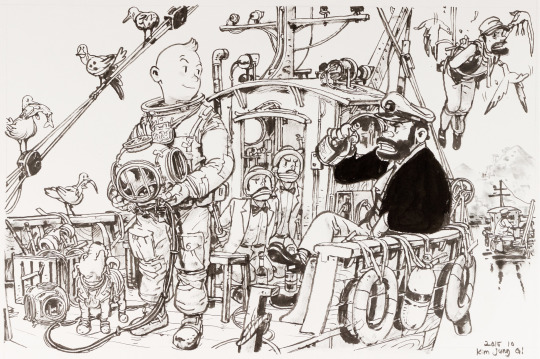
“Tintin Homage To Hergé” Kim Jung Gi 2015
#illustration#comics#comic books#tintin#snowy#milou#captain haddock#thomson and thompson#dupont et dupond#not herge#kim jung gi
180 notes
·
View notes
Text







Most Underrated Comedy Series
Girls5Eva
The Horror of Dolores Roach
Upload
Colin From Accounts
Loot
Based On a True Story
#girls5eva#the horror of dolores roach#upload#colin from accounts#loot#based on a true story#sara bareilles#renee elise goldsberry#paula pell#busy philipps#justina machado#maya rudolph#michaela jaé rodriguez#kaley cuoco#chris messina#tom bateman#andy allo#priscilla quintana#liana liberato#alejandro hernandez#cyndi lauper#allegra edwards#kevin bigley#owen daniels#harriet dyer#patrick brammall#helen thomson#joel kim booster#ron funches#adam scott
3 notes
·
View notes
Text

Many thanks to Darren for this one of Gordon Thomson (Adam) and Kim Morgan Greene (Channing) at an ABC party.
1 note
·
View note
Text
The MacNeil/Lehrer Report: Korean Intelligence and Lobbying Scandal (1977)

This episode of “The MacNeil/Lehrer Report” on PBS originally aired June 20, 1977
You can watch the full video here
ROBERT MacNEIL: Good evening from Washington. Over the weekend we`ve had another burst of revelations and charges concerning the Korean intelligence and lobbying scandal. The New York Times reported that two years ago the United States bugged the Presidential mansion in South Korea, and produced specific reports on what the Times called "Korean bribery of American Congressmen."
Former Texas Governor John Connally charged on NBC`s "Meet the Press" that the story could wind up as the biggest cover-up of this century. Official Washington, jittery after the Watergate experience, has watched the slow drip, drip of reported facts with mounting fascination. Every new element makes the web of Korean activity more tangled and harder to grasp. Jim?
JIM LEHRER: This is a story with just about everything -- everything but an ending. Big names in government have been thrown around. There are tales of $100 bills stuffed in envelopes, lavish parties at exclusive Washington clubs, offers of gifts and trips and sex, secret agents lurking about and just about anything else you`d need to spice up a pulp thriller. But no only is the ending up in the air, the middle chapters aren`t complete. There are scads of investigations going on, but as of now most of the public information has come from those few who have chosen to talk or from various investigative journalism efforts. What we`re going to do tonight is simply put together the highlights of what is know at this point: the public record thus far, that will include some juicy tidbits of spice but also the more substantial question of what`s been happening to U.S. policy toward Korea in the process.
MacNEIL: The roots of our Korean connection are buried in our military and economic entanglements with Korea. The bargaining counters have been troops and money. President Carter`s decision to with draw American ground troops from Korea signals the end of a military presence lasting since the Korean War. This presence began in earnest when the communist North Koreans invaded the South in 1950.The war ended in stalemate in 1953, after 54,000 Americans had died. The leading question for U.S. policy then became: how to prevent another conflict involving the major powers whose interests crossed at the thirty eighth parallel? The answer was regional stability and the containment of China.
This meant the continuing presence of U.S. troops in South Korea, some 60,000 till 1970, then 42,000. It meant massive military and economic aid, officially more than $13 billion to this day. It also ultimately meant supporting whatever government happened to be in power in Seoul: at first, Syngman Rhee; then, after a coup in 1961, the increasingly despotic regime of Park Chung Hee. We wanted stability in Korea and Park was glad for U.S. assistance to buttress his power. That was the initial quid pro quo. But if Park needed U.S. troops and money to stay in power, we soon needed his help in Vietnam. South Korea sent 48,000 troops to Indochina in the late 1960`s.
President Johnson and then-President Nixon paid nearly a billion dollars for them, and only told the Congress later. Special war-related contracts were also made available to Korean businessmen, hand picked by Park. When President Nixon recalled the Seventh Division from Korea in 1970, Park handed Uncle Sam another whopping bill, this time $1.5 billion in aid. Now a third bargaining counter appeared: rice. Washington began to ship huge amounts of rice to Korea under the Food for Peace program. Korea didn`t need that much rice; in fact, it ruined Korean rice production, as AID officials kept pointing out. But it kept the price of rice down in Korean cities where Park supporters resided. It enriched Park and his colleagues when they sold it for profit, and it kept American rice growers -- and their Congressmen -- happy.
LEHRER: In Korea, President Park had other problems. There were student demonstrations, close and contested elections, and talk of U.S. troop withdrawals. So the new President set up the Korean Central Intelligence Agency -- the KCIA -- to combat this dissident trouble from within. It was modeled after the American CIA. but soon there were complaints from anti- Park Koreans about KCIA strong-arm tactics and out and-out brutality, among other things. But the organization grew -and flourished. A recent New York Times Magazine story estimated that it has more than 50,000 agents o various kinds on its payroll, both in Korea and abroad. And "abroad" has meant mostly the United States. Its job in Korea may have been to quiet the dissidents, but here the KCIA`s primary mission was to win friends and influence people, the more important the friends and the people the better. Dr. Jai Hyon Lee, Chief Cultural and Information Officer at the South Korean Embassy here from 1970 to `73, appeared on our program last November, and here`s what he had to say about it:
Dr. JAI HYON LEE: I was attending a series of staff meetings in the spring of 1973 at which the KCIA station chief, with the aid of his assistants, was telling us what sort of clandestine operations they were going to do. In other words, they were trying to orient us to their plans so that they could initiate us into that operation. And in those plans included were such as seduction and, if possible, payoff or buying off American leaders, including Congressmen and Senators.
LEHRER: Press reports, particularly in the New York Times, say the American lobbying plan was hatched at a meeting in November O, at the presidential mansion in Seoul, known as the Blue House. It followed the Washington announcement that 20,000 of the 60,000 American troops in Korea then would be withdrawn. In addition to President Park and other high officials of the Seoul government, the Times and the Washington Post have reported that at least two other people were present: Tongsun Park and Pak Bo Hi. They are important to this total story, and we`ll be back to them. The Blue House plan included making campaign contributions and gifts to American public officials as well as offering them free trips to Korea and other places, honorary degrees from Korean universities and a lot of entertainment here in Washington. Dr. Lee summed up the purposes:
LEE: They wanted to influence the Congress and their legislative activities in favor of Park`s dictatorial policies -- that`s one thing they went after. But it was not only those KCIA agents stationed at the Embassy but there were other channels...
LEHRER: Dr. Lee said the KCIA`s efforts here also included the suppression of criticism among Korean residents in the United States. In short, the KCIA operation here has been extensive. In addition to the work done out of the Embassy in Washington, there were also KCIA stations at Korean consulates in New York, Los Angeles, San Francisco, Chicago, Houston and at the Korean Observer Mission at the United Nations.
MacNEIL: The key operative -- perhaps the most important unofficial link -- between the Korean government and the United States was-Washington businessman Tongsun Park. This Park -- no relation to President Park - became famous in Washington society for his lavish parties for society figures, Congressmen, Senators and high government officials -- valuable contacts for an unregistered foreign lobbyist. Park was born in Korea, but came to school in Washington in the 1950`s. As a student at Georgetown University he met Chung II Kwon, Korea`s Ambassador to Washington, later Prime Minister. Chung introduced Tongsun Park to President Park and to Kim Hyung Wook, the director of the KCIA.
On June 5 the New York Times quoted Kim as saying, "When I was director of the KCIA, he was my agent. I controlled Park at that time." Kim said that Park volunteered to persuade Congressional friends to vote for more military aid to South Korea. In return, according to the Times, Park was later named sole agent of American rice sales to Korea. After attending that Blue House meeting in 1970 Park began operating in Washington in a big way: offering campaign contributions to Congressmen, throwing large parties for such luminaries as Tip O`Neill when he was majority leader and John McFall when he was majority whip. Among the hundreds of guests were high level officials like Gerald Ford, Elliott Richardson, and former CIA director Richard Helms. In all Park spent between one-half and one million dollars a year, according to the Washington Post. Just where all that money came from is not certain. But when Park fled the United States last winter, he left behind a network of holdings that connected him to many influential people in Washington as well as made money for him: a mansion in an exclusive area of Washington; an apartment in the Watergate; this headquarters for his holding company, Pacific Development, Incorporated; a third home in Georgetown; stock in Pisces, a fashionable Georgetown discotheque; businesses such as the Sutter`s Tavern Corporation, which operates the Georgetown Club -- the site of many of his parties.
And Park included his friends in the deals. A number of "silent" partners in Congress have come to light. In a November 1976 interview former Democratic Congressman Richard T. Hanna of California told the New York Times he earned between $60,000 and $70,000 in three years as Park`s silent partner. According to the Times Park told federal investigators that another partner, former Congressman Cornelius Gallagher, who spent more than a year in jail on tax evasion charges, also accepted money from him. The Times said that in 1975, after Gallagher had left Congress and prison, Park transferred $250,000 from a Bermuda account to him.
But from the beginning, rice deals were Park`s forte, and may have been his chief source of money. According to the Washington Post he received eight million dollars over four years in the early 1970`s from just one U.S. rice exporter. Congressman John McFall, a Democrat who represents a rice-growing district in California, has told the Washington Post that he wrote at least four letters for Park and received some 9,000 in cash over a period of five years. In one letter written in February of 1973, McFall praised Tongsun Park to President Park Chung Hee. Two months later Park held a party to celebrate McFall`s selection as majority whip in the House.
One of Park`s contributions to McFall was $4,000 in cash left at his office on October 18, 1974, while McFall was out campaigning.
JOHN McFALL: That was a legal contribution from Tongsun Park, who in 1974 was not under any kind of suspicion. He was a well-known man here in town. I put that into a legal account. I spent it for legal office expenditures, and I have filed with the clerk a complete report of my office account from its beginning in 1972 and a report for this Congress which shows how I spent that money for newsletters and office equipment. That is a complete statement of what my relationship is with Tongsun Park, which is only those two legal contributions. I have known him only as a rice salesman over the years, and helped to sell California rice, with him as a broker for South Korea.
MacNEIL: Until a new law came into effect on January 1, 1975, foreign contributions to Congressional campaigns were not illegal. Otto Passman, the powerful chairman of the House subcommittee that approved foreign aid appropriations, also wrote Park Chung Hee to praise the "phenomenal" work of Tongsun Park in arranging large American rice sales to South Korea. According to the Washington Post, the former Louisiana Democrat also noted that Korean purchases of rice, cotton and soybeans had "greatly helped" his district and state. Park also helped sell rice grown in the Louisiana district of former Congressman Edwin Edwards and offered a contribution to his gubernatorial campaign. Edwards, now Governor of Louisiana, claims he refused the contribution but admits that his wife, Elaine, did accept $10,000 in cash from Park.
Gov. EDWIN EDWARDS, (D) Louisiana: My wife does many things that I don`t know about, and vice-versa. I`m sure every wife has secrets from her husband, some large, some small. This particular incident happened five years ago, seven months before I became Governor, two months before I won the first primary, at a time when I was not on the public payroll. Even my harshest critic has not suggested that there was any quid pro quo for the money or that I had done this, that or the other for Tongsun Park in return for the contribution. It was a private matter between him and Elaine. And unless and until someone is prepared to show a violation of the public trust or an improper action on behalf of Park in return for it, then I never did understand the great hue and cry about it.
MacNEIL: In mid-October last year, Park quietly left the United States, leaving Justice Department lawyers with whom he had been cooperating wondering whether he would ever return. Park visited Seoul and Tokyo after his departure, according to the Washington Post, and is now believed to be living in London.
LEHRER: Tongsun Park wasn`t the only Korean who threw big parties in Washington. Another was Suzi Park Thomson, a naturalized U.S. citizen who worked for four different Congressmen in the last ten years. Her last job was with Carl Albert, the recently retired Speaker of the House. She earned $14,000 a year as a clerk-typist, but somehow managed to throw numerous large and expensive parties to mix Congressmen and Koreans. The Justice Department is granting her immunity to talk, according to the New York Times.
But there is more to this, of course, than parties. Back to Jai Hyon Lee, the former press secretary at the Korean Embassy in Washington. He told us of a scene one day in the Ambassador`s office:
LEE: The Ambassador was at the desk and quite busy packing up something out of his attached case. As I approached he looked up and said, "Well, I`m busy. Why don`t you speak up for what you got on your mind? I have to leave soon." So I said, "I can`t discuss this matter within a matter of two or three minutes." By that time he was finishing up his packing of hundred dollar bills into a number of plain white envelopes, and I was kind of appalled to see so much cash. I saw a large amount of money, but never in cash. So I asked him what he was doing. He said, "Well, K need these things delivered." He was by then through with stuffing this money into envelopes, and he put some envelopes into his inside pockets and outside pockets; still there were about a good two dozen envelopes left in his briefcase. He closed the briefcase and he was standing up, so I asked him where he was going. And he said, "To the Capitol."
LEHRER: That brings us to another important man who attended the Blue House meeting. His name is Colonel Pak Bo Hi, a former Korean intelligence officer and now known mainly as translator and aide to controversial Reverend Sun Myung Moon. In 1964 Colonel Pak helped found an organization here called the Korean Cultural and Freedom Foundation. A former intelligence colleague, Kim Jong Pil, the founder of the Korean CIA, was named honorary chairman. Honorary presidents through the years have included people like former U.S. Presidents Truman and Eisenhower. Richard Nixon was on the board of directors at one time and so were Ed Sullivan and Perle Mesta.
The Foundation appealed for money to finance Radio Free Asia, which unlike Radio Free Europe had no connection to the U.S. government, although some contributors may have thought it did. Another of its projects was the Children`s Relief Fund, set up to help feed hungry children. Last October the New York State Board of Social Welfare barred the Foundation from further fund raising in the state on the grounds that an investigation showed that only eight percent of its money actually went to children. There have been suggestions that-this and other funds collected by the Foundation were used in the Blue House lobby effort but there is no publicly disclosed evidence to back that up. Colonel Pak`s association with money did not end with the Foundation, however. He was also involved in the formation of the Diplomat National Bank in Washington.
According to the New York Times, Colonel Pak personally assembled half of the bank`s initial two-`million-dollar capital with the express purpose of servicing the Asian-American community.
And one of the bank`s biggest depositors was Reverend Moon`s Unification Church. In addition, the Korean Cultural and Freedom Foundation moved its accounts to the new bank. There`s also a Tongsun Park connection in this one. The Times reported that the bank`s organizers kept Park off the board of the bank but that Park secretly went ahead and invested $200,000 in the project through business associates. The directors have since asked the Park people as well as Colonel Pak and the Unification Church group to sell their shares. While there has been the implication that the bank was used as a depository for some of the influence-peddling money, there have been no charges that the bank itself was involved in any wrongdoing.
MacNEIL: How many officials and members of Congress this vast and intricate network was able to reach is as yet unclear. The Washington Post reported "at least twenty-two," the Washington Star sails many as twenty-five," and the New York Times reported the possible involvement of ninety members" of Congress. Representative John Brademas of Indiana, the present majority whip, said he received three campaign contributions from Park totaling $5,150, but turned down a free vacation. According to the Washington Post, Nancy Howe, former aide to Betty Ford, and her husband accepted two vacations. Jerome Waldie, former Democratic Congressman from California, accepted $2,000 for his gubernatorial race. Others under investigation, according to the Washington Post, for accepting contributions include Representatives Joseph Ad abbo, John Murphy and Lester Wolff, all New York Democrats; Republican Tennyson Guyer of, Ohio and Democrat Robert Leggett of California.
A number of Congressmen also took trips to Korea. According to the New York Times, they included Republican Edward Derwinski of Illinois an Democrat Clement Zablocki of Wisconsin. Zablocki is also a member of the Advisory Council of the Korean Cultural and Freedom Foundation. Others went to Korea with money provided by the Korean-U.S. Economic Council, a group closely associated with the Korean government. According to the Washington Post these included Republicans Willaim Ketchum of California, Robert Daniel, Jr. of Virginia, Marjorie Holt of Maryland, and Senator Jake Garn of Utah. Garn told the Post he took the trip because "I don`t believe in junkets at the taxpayers` expense." This same organization partly funded the trips of Republican Thad Cochran and Democrat David Bowen, both of Mississippi, and Democrat Dawson Mathis of Georgia, according to the Washington Post. When questioned, many said they felt no conflict. Some, given gets or contributions, felt it necessary to return them. According to the Washington Post, these people gave gifts back: Democrat Phil Burton of California sent back to the Korean Embassy a topaz pin that had been left at his office for his wife. Republican Senator Ted Stevens of Alaska returned a campaign contribution of at least $2,500. Don Bonker, a Democrat from the State of Washington, was offered something different -- a beautiful woman. He said no. Democrats Walter B. Jones of North Carolina and Helen Meyner of New Jersey both turned down free trips to South Korea. Republican Charles Wiggins of California was offered a contribution he declined.
Rep. CHARLES WIGGINS`, (R) California: It was in 1974, and it was in the election season, and we had some small talk and simply exchanged pleasantries which included a question on his part as to how my campaign was going. And I told him that it appeared to be going fine. Then he said that he hoped that I was re-elected, and he said that." there are people in Korea that would be interested in helping your campaign." Well, he simply made that statement, and that triggered my response, which was simply that it`s illegal for foreign nationals to make contributions to American political races and of course ,I couldn`t accept any such help.
MacNEIL: John Nidecker, a White House aide to President Nixon, was given $10,000 in cash as he left Korea after a visit in 1974. He returned the money and also later gifts of antiques worth another $10,000. A few months later a Korean national assemblyman left valuable gifts for twelve White House aides, including a pearl necklace for President Nixon`s secretary, Rosemary Woods. All those gifts were mailed back to Korea. Former House Speaker Carl Albert, in whole office Suzi Park Thomson worked, was showered with gifts of Korean art worth more than $5,000. Albert reported them to the government, and they now sit in the vaults of the General Services Administration.
LEHRER: There is a final fundamental question: did the Blue House plan to influence the Congress in its Korean policy pay off? All that`s known at this point is the Congressional record on Korea -- every Congressional effort to call for a troop withdrawal has been defeated. In the most recent action last Thursday, the Senate declined to endorse President Carter`s decision to pull out the remaining 42,000 troops. The record is the same on military and economic aid.-- almost every effort to reduce it has been defeated. Another "known" in this equation is that Melvin Laird, then Secretary of Defense, warned the State Department as early as 1970 that the Koreans had set up a lobbying effort to undermine the withdrawal of American troops. But anything substantial one way or another on the question of linkage will have to await the outcome of one of at least fifteen investigations now under way. There is a special Korean Investigation Subcommittee of the House International Relations Committee. The House Ethics Committee is probing the conduct of individual members of Congress. A Senate subcommittee has looked into connections between an oil company and Tongsun Park. And the Senate Intelligence Committee is now reviewing actions by the FBI, CIA, and Justice and State Departments. The Justice Department itself has been presenting evidence to a grand jury for over a year.
Other agencies, which include the IRS, SEC, Federal Reserve Board, Department of Agriculture and the Army, are looking into questions germane to them -- the tax returns of possibly involved Congressmen, possible payoffs by defense contractors, the financing of the Diplomat Bank, illegal kickbacks on rice deals, rigging of bids on military contracts, and so on. Finally, last week, the Republican leadership, Senator Howard Baker of Tennessee and Representative John Rhodes of Arizona, suggested it was time for the appointment of a Watergate-style prosecutor. So far, President Carter says no. Jody Powell, the President`s spokesman, said that unlike Watergate, there was no reason to believe the Attorney General to be involved or in any way unable to carry out an appropriate investigation. Everywhere,. it seems, there are some reminders of Watergate. One of the most obvious areas of comparison is the possibility of an official cover- up.
Donald Ranard, former head of the State Department`s Office of Korean Affairs, raised this question on this program last November.
DONALD RANARD: It seems to me that we knew enough to have moved this administration towards an investigation far earlier than it began. We knew this beginning in 1970, we knew it in `71; in `72 I was talking to the Department of Justice; in `73 I was discussing the matter with the FBI and in `74 as well. But for reasons which I still have some difficulty grasping, it was an administrative decision, I believe, not to move ahead with it.
LEHRER: Ranard claims to have received numerous rebuffs from Justice Department officials including John Mitchell, Richard Kleindeinst and Robert Mardian on grounds of "insufficient evidence" for prosecution. If the government did indeed move slowly as charged, why was there a reluctance to investigate aggressively?
RANARD: Because of the money being passed -being passed, I think, on both sides of the aisle. I think the administration was probably in no position to open an investigation against the Korean CIA.
MacNEIL: Whatever the reason for the delays, there is clearly no mood in Washington for any rush to judgment. And the very deliberate pace of all these investigations has fed the frequent charges of a cover-up. But at this moment only federal officials at the heart of the investigation could say whether this is going to blow up into a scandal of Watergate proportions or disappear in a puff of political smoke.
Although there have been unconfirmed reports, it is not even known whether anyone -- Congressmen, U.S. officials, or Koreans -will be indicted...and if they are indicted, for what specific crimes. To know all that we`ll have to wait until more facts come out. Much may depend on the evidence of Kim Hyung Wook, the former KCIA boss who controlled Tongsun Park. Kim is now living here in exile. On Wednesday he testifies in public before a House subcommittee.
Related links
President Park Said to Direct Lobbying (1978)
Korean Bribe Figure Tied to Bank Inquiry (1977)
Former KCIA Head Says Park Tong Sun was Korean Agent (1977)
Kim Jong Pil offers support to the Unification Church members in San Francisco in 1962
George Bush, head of CIA, protected Moon
How Moonies cult helped Tae Kwon Do
Rev. Moon Aide Concedes KCIA Sent Him $3,000 (1978)
House Unit to Query Aides to U.S. in Korea (1977)
What the KCIA and the Moonies did to the Editor of the Korea Journal, Song Sun Keun
Rev. Moon Buys а College, Hires Spooks & Moonies (1992)
Neil Salonen - KCIA Agents Becoming UC Members is Not Aboveboard!
#Suzi Park Thomson#Kim Hyung Wook#blue house#bo hi pak#kcia#unification church#south korea#republic of korea#intelligence agencies#south korean government#tongsun park#jai hyon lee#video#koreagate#1977#sun myung moon#richard nixon#u.s. government#government#politics#eisenhower#truman#otto passman#jim lehrer#Diplomat National Bank#washington d.c.#unification church in the united states of america#unification church in usa#unification church in the united states#american church
1 note
·
View note
Text

[Image description: Horizontal rectangular graphic; the background is the Disability Pride flag, with adjoining red, yellow, white, aqua, and green stripes slanting together from the top left to bottom right corners on a dark gray background. White text in the center foreground says "Disability Pride: / Suggested Reading / Columbus State Library / library.cscc.edu."]
July is Disability Pride month, and that means it's time for a bigger, better, updated Disability Pride reading list!
A Disability History of the United States, by Kim E. Nielsen
Being Heumann: An Unrepentant Memoir of a Disability Rights Activist, by Judith Heumann
About Us: Essays from the Disability Series of the New York Times, Peter Catapano and Rosemarie Garland-Thomson, editors
Care Work: Dreaming Disability Justice, by Leah Lakshmi Piepzna-Samarasinha
Demystifying Disability: What to Know, What to Say, and how to Be an Ally, by Emily Ladau
Disability as Diversity: Developing Cultural Competence, by Erin E. Andrews. Companion case study volume here.
Exile & Pride: Disability, Queerness, and Liberation, by Eli Clare
The Minority Body: A Theory of Disability, by Elizabeth Barnes
Nothing about Us without Us: Disability Oppression and Empowerment, by James I. Charlton
The Problem Body: Projecting Disability in Film, Sally Chivers and Nicole Markotić, editors
Routledge Handbook of Disability Studies, Nick Watson and Simo Vehmas, editors
My Wonderful Life as a Vegetable, Lars Feldballe producer/director
The Disability Rights Movement: From Charity to Confrontation, by Doris Zames Fleischer and Frieda Zames
Disability Experiences: Memoirs, Autobiographies, and Other Personal Narratives, G. Thomas Couser and Susannah B. Mintz, editors
The Routledge Handbook of Disability Activism, Maria Berghs, Tsitsi Chataika, Yahya El-Lahib and Andrew K. Dube, editors
Black Disability Politics, Sami Schalk
Year of the Tiger: An Activist's Life, by Alice Wong
Disability Visibility: First-Person Stories from the Twenty-First Century, Alice Wong, editor
From the Periphery: Real-Life Stories of Disability, by Pia Justesen
Young, Disabled and LGBT+: Voices, Identities and Intersections, Alex Toft and Anita Franklin, editors
Disability, Media, and Representations: Other Bodies, Jacob Johanssen and Diana Garrisi, editors
The Routledge Handbook of Disability Arts, Culture, and Media, Bree Hadley and Donna McDonald, editors
Occupying Disability: Critical Approaches to Community, Justice, and Decolonizing Disability, Pamela Block, Devva Kasnitz, Akemi Nishida, Nick Pollard, editors
Use our catalog to search for more titles on this topic!
Current Columbus State Students and employees can check out books using a photo ID. Ebooks and other electronic materials can be used both on and off campus; off-campus use requires logging in with your Columbus State username and password.
37 notes
·
View notes
Text
Black Snow
Black Snow (Serie 2023)
#TravisFimmel #BrookeSatchwell #ErikThomson #KestieMorassi #AlexanderEngland #AnthonyJSharpe
Mehr auf:
SerieJahr: 2023- (Januar)
Genre: Krimi / Drama
Hauptrollen: Travis Fimmel, Brooke Satchwell, Erik Thomson, Kestie Morassi, Alexander England, Anthony J. Sharpe, Gulliver McGrath, Lucy Bell, Lee Jones, Kim Gyngell, Rob Carlton, Talijah Blackman-Corowa, Fraser Anderson, Josh Macqueen, Molly Fatnowna, Jemmason Power, Daniela Farinacci…
Serienbeschreibung: Im Jahr 1994 wurde die 17-jährige Isabel…
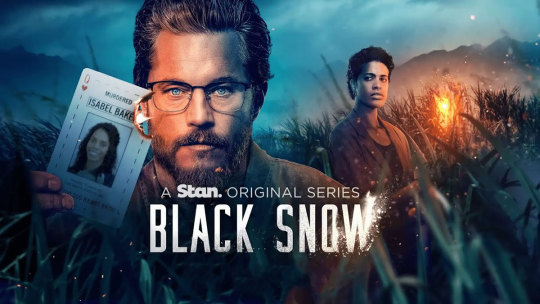
View On WordPress
3 notes
·
View notes
Text
go thru drafts ? 🚫 . come up with a bunch of test muses and headcanon instead ? 💯 ! long story short i hav a shit ton of test muses under the cut so like for a starter ( or many ? ) from any of them !
adeline rudolph → cat myers! striptease instructor. 29 she/her
simona tabasco → estella donati! queenpin. 29 she/her
riz ahmed → isaac roy! second in command. 40 he/him
olivia scott welch → norah thomson! thief. 24 she/they
kim mingue → bellamy park! jeweler. 30 he/him
brigette lundy-paine → paris preston! dog walker. 27 they/them
alex fitzalan → kieran robbie! barista. 27 he/him
chae hyungwon → seonwoo ahn! wedding planner. 28 he/him
choi yuna → adele roh! wedding planner. 25 she/her
chance perdomo → harvey bardot! graduate teaching assistant. 26 he/him
lee sungkyung → krystal dae! singer. 30 she/her
rami malek → bo saleh! orchestra conductor. 40 he/him
sakura miyawaki → kanako kuroo! scam artist. 24 she/her
lee chaeyoung → maeve choi! finance bro. 22 she/her
park sunghoon → juno seong! former child star turned history student. 22 he/him
12 notes
·
View notes
Text




Anthony Calf as Pip, Kim Thomson as Estella, Martin Harvey as Young Pip, Jean Simmons as Miss Havisham and Anthony Hopkins as Magwitch in "Great Expectations"
1 note
·
View note
Text
Znasz ich ze słyszenia, z portali plotkarskich a może za dzieciaka widziałeś jakieś klipy na MTV. Piosenkarze, muzycy, brządkarze. To te kreatury ziemskie na co dzień umilają nam czas i zagłuszają jestestwo innych ludzi. Kochamy ich i nienawidzimy. Szczególnie wtedy gdy ulubiony kawałek ustawimy jako budzik! Ale ja nie o tym. Niektórzy twórcy się ukrywają za maskami lub postaciami. Pozwólcie, że zaprezentuję wam paru z nich! Bo chociaż to nie sekret (twórcy sami ujawniają swoją twarz) to nadal możecie kojarzyć tych artystów poprzez ich persony czy maski.
Gorillaz

Wbrew pozorom to nie są czterej artyści, gdzie każdy ma swoją rolę w kapeli. Założycielami jest Damon Albarn wokalista i osoba, zajmująca się muzycznymi aspektami Gorillaz oraz Jamie Hewlett, który zajął się wizualną oprawą rzeczy pozostałych. I tak świat otrzymał wybuchową mieszankę cudnych animacji plus dobrze brzmiącej muzyki. Czy jest na sali ktoś, kto nie słyszał o nich?... Ktokolwiek? A, tak jeszcze doprecyzuję. Panowie nie ukrywają się, bo się wstydzą, są koncerty hologramowe oraz takie gdzie występują we własnej osobie. Od jakiegoś czasu też eksperymentują z koncertami AR. Które moim zdaniem wychodzą przednio:
youtube
youtube
Deadmau5
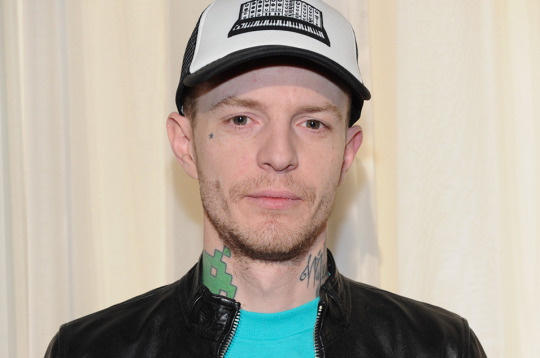

Ayyyy myszaaaa, Deadmau5, czyli Joel Thomas Zimmerman to Kanadyjski muzyk, zajmujący się gatunkiem elektronicznych brzdąkań. Na pewno niejeden z was kojarzy tę gigantyczną maskę myszki i epickie światła za nią podczas koncertów. Jednak ostatnie raporty googlowe głoszą, że artysta nabawił się problemów z kręgosłupem po noszeniu tej ciężkiej maski. Więc fajnie, zbudował swoją personę, ale jakim kosztem?
W sumie mogłabym jeszcze wspomnieć Marshmallow’a, Draft Punku czy innych artystów zajmujących się elektroniczną muzyką, a którzy chętnie przywdziewają maski. Z jakiegoś powodu w tym gatunku jest to dość popularne…
youtube
Slipknot



… Czy jednak na pewno tylko świry muzyki elektronicznej się ukrywają? Co z metalowcami? Ci panowie również bardzo chętnie przywdziewają maski a przy okazji cały strój. W przypadku grupy Slipknot przebrania miały być znakiem rozpoznawczym i marką grupy. Czy się udało? Możliwe. Czy byłaby jakaś różnica, jakby nie ubierali mrocznych masek? Kij wie. Slipknot mimo wszystko zdobył popularność poprzez chwytliwe kawałki. Powyżej widzicie, jak wyglądają osoby w zespole. Poniżej po kolei kto jest kim.
Shawn Crahan
Mick Thomson
Jay Weinberg
Sid Wilson
Corey Taylor
Craig Jones
Alessandro Venturella
Jim Root
Michael Pfaff
youtube
Sia
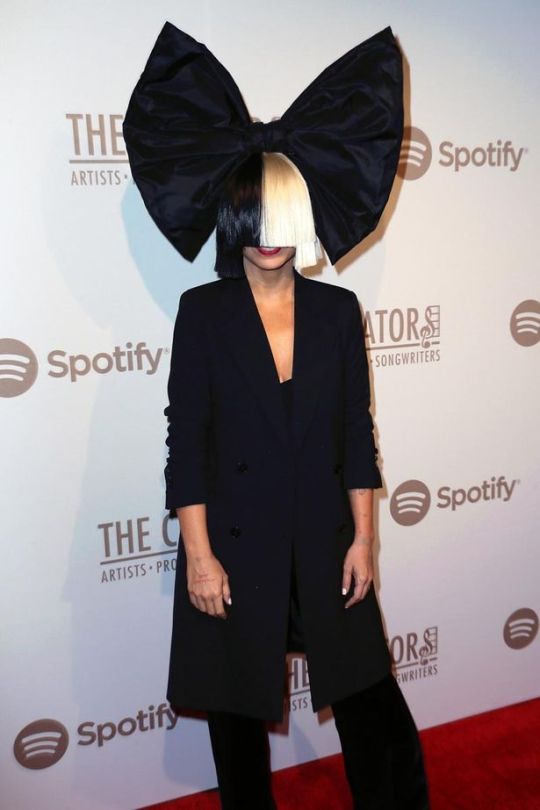
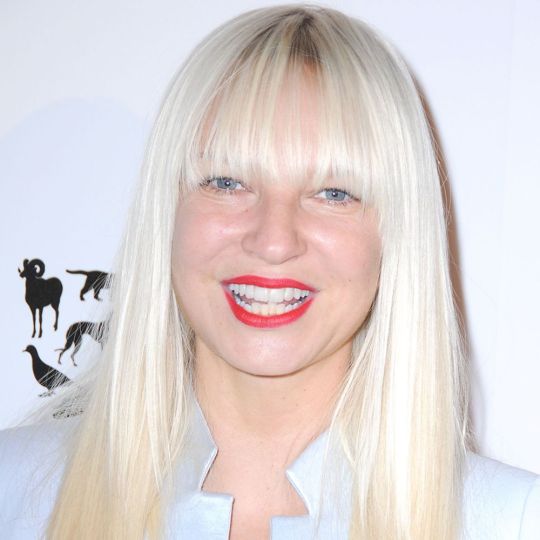
Przechodząc z grubych brzmień do łagodniejszych muszę wspomnieć o Sia. W sumie to wiemy jak wygląda Sia Kate Isobelle Furler, nie jest to sekretem. Natomiast powodem, dlaczego artystka nosiła przeogromne, dziwaczne peruki była chęć kontroli. Kontroli nad swoim życiem jako celebrytki, nad swoją prywatnością. Poza tym chciała tym samym dodać trochę tajemniczości swojej osobie. Jej najbardziej rozpoznawalnym wigiem jest dwukolorowa peruka z gigantyczną kokardką.
youtube
Kaen


Dawid Henryk Starejki – raper z naszego Polskiego podwórka. Swego czasu był tajemniczością sceny rapowej. Chował się za maską, która stała się jego znakiem rozpoznawczym. A która miała swoją własną personę — alter ego — Dave. W późniejszych latach, gdy raperowi udało się rzucić alkohol, ściągnął zasłonę i pokazał się ludziom. Aktualnie powraca do swojego starego image (ale bez alkoholu ;)), czy to na plus? Imo jak najbardziej, Kaen wrócił a z nim Dave! Poza tym na scenie hip-hopowej maski, apaszki, kominiarki często są używane w ramach rekwizytu, by być bardziej „Badass” i „Gangsta”.
youtube
3 notes
·
View notes
Text
North Korea Denounces U.S. Move to Bring Ballistic Missile Submarine to Peninsula : Inside US
SEOUL (Reuters) – North Korea denounced on Monday what it called a move by the United States to introduce a nuclear-powered ballistic missile submarine to waters near the Korean peninsula, saying it creates a situation that brings a nuclear conflict closer to reality.
(Reporting by Jack Kim; editing by Diane Craft)
Copyright 2023 Thomson Reuters.
Source link
View On WordPress
0 notes
Text
Olympic Games legacy
For the Olympic legacy to be achieved, a vision must be developed. For people, cities and territories, and the Olympic Movement, it encompasses all intangible and tangible long-term benefits associated with hosting the Olympic Games or sports events (IOC, 2017). Legacy is very important to make strategic plans in order to host any sports events. Especially, Olympic games are the biggest sports event in the world. Thus, the process of developing the legacy is significantly important and interesting things. It has become increasingly important for bid committees, event governing bodies, and host governments to focus on the long-term legacy of hosting large-scale sports events (Thomson et al., 2019 as cited in Leopkey & Parent, 2016, Veal, Toohey, & Frawley, 2012, Preuss, 2007, Ritchie, 2000). It may be possible to benefit future generations from positive social legacies like skill building and volunteering in the host community (Dickson & Darcy, 2022 as cited in Dickson et al., 2020).

IOC
Hosting Olympic Games could give a big impact and opportunities for the host country. For example, new job opportunities, meeting new people, economic effects and new buildings and transport systems. Events venues, transportation services, road upgrades, sports facilities, and accommodations are among the new infrastructure communities benefit from, as well as potential new business and tourism opportunities (Griffith University, n.d.).
Globalization, digitalization, and mediatization have caused the Olympic Games to grow into a massive event that incurs significant operating costs (Seung-Jin, 2022). There would be a huge cost in preparation for the Olympic Games but worth it. Also, as Kim stated that Mega-events have motivated countries and cities to host them because they are expected to bring positive changes, and their legacies are actively investigated (2019).
The Brisbane Olympic and Paralympic Games will be held in 2032. Queensland Government starts preparation for the Olympic Games. It is based on the results of the national Hopes and Dreams survey and the discussion at the Legacy Forum with 500 of Australia's smartest, brightest and bold minds. It will provide a framework for public and private sector cooperation to plan and make decisions in the years ahead under the Brisbane 2032 Legacy Plan (Queensland Government, 2023). According to the Games Master Plan, 84 per cent of venues are existing or temporary. By using this model, Brisbane 2032 will be delivered with significant cost savings and will provide a precedent for future Olympic and Paralympic Games in mid-sized cities (Queensland Government, 2022).
References
Dickson, T. J., & Darcy, S. (2022). Next Steps in Mega-Sport Event Legacy Research: Insights from a Four Country Volunteer Management Study. Event Management, 26(8), 1849-1854.
Griffith University. (n.d.). Legacy: Before, during and after. Future learn. https://www.futurelearn.com/info/courses/sport-inclusion/0/steps/41656#:~:text=Legacy%20is%20the%20term%20we,a%20major%20sports%20event1.
International Olympic Committee. (2017, December). Legacy strategic approach moving forward. https://stillmed.olympics.com/media/Document%20Library/OlympicOrg/Documents/Olympic-Legacy/IOC_Legacy_Strategy_Full_version.pdf?_ga=2.203412370.2032941517.1683451763-1122605148.1683451763
Kim, H., Choe, Y., Kim, D., & Kim, J. (2019). For Sustainable Benefits and Legacies of Mega-Events: A Case Study of the 2018 PyeongChang Winter Olympics from the Perspective of the Volunteer Co-Creators. Sustainability, 11(9)
Queensland Government. (2023, 3 May). Legacy. https://www.qld.gov.au/about/Brisbane2032/legacy-program
Queensland Government. (2022, 5 October). Brisbane 2032 Master Plan. https://www.qld.gov.au/about/Brisbane2032/brisbane-2032-master-plan
Seung-Jin, H., Lee, W., So-Hee, K., Yoon Sang-Hoon, & Hyunwoong, P. (2022). Assessing Expected Long-term Benefits for the Olympic Games: Delphi-AHP Approach from Korean Olympic Experts. Sage Open, 12(4)
Thomson, A., Cuskelly, G., Toohey, K., Kennelly, M., Burton, P., & Fredline, L. (2019). Sport event legacy: A systematic quantitative review of literature. Sport Management Review, 22(3), 295–321.
0 notes
Text
2023-03-07
Food
You can’t get scummier than John Cisna - the lowdown here
Singapore: Elderly man charged more for his 饭菜 meal without his knowledge - Kopitiam said action will be taken against the stall in question
Singapore

^ Tampines BTO lift lobby painted completely red irks residents - imagine coming home after a stressful day to this colour
...& HDB says it will take action to rectify the above
Explosion @ Audi Ubi service centre blows out wall... 100 people evacuated & 1 person injured
Discarded furniture left @ Hougang HDB lift lobby infests woman’s flat with bugs - No penalty for her inconsiderate neighbour who left them there?! OK...
Driver causes jam at Woodlands checkpoint after entering motorcycle lane
CPG Consultants ordered to pay Or Kim Peow Contractors $43.8m in PIE viaduct collapse incident
Salaries of software engineers here hit record high - demand for AI skills to rise in tech sector
Former Beach Rd hotpot shop owner found with crayfish meat 8 years past expiry in illegal cold store - had an unrefrigerated truck teeming with cockroaches too
Business
Uniqlo & Amazon in Singapore boost hiring of persons with disabilities
Gossip
Ada Choi visits Singapore with her 3 kids - undeterred by constant rain
Politics
Mahathir warns Malays in Malaysia could lose power & country could end up like Singapore - some Malaysians welcome that!
Beijing warns of “catastrophic consequences" if US continues to suppress China - What are they gonna do?! Let the world know the moon landing was fake?! LOL
Transport
Singapore: Train fault causes delay on Thomson-East Coast MRT line - glitch traced to electronic cards
0 notes